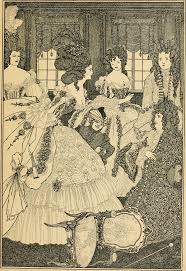Elements of Tragedy by Aristotle | Poetics | Critical Theory
.jpeg)
Elements of Tragedy by Aristotle Now let's discuss the ingredients of a tragedy. Aristotle's theory of tragedy talks of six ingredients of tragedy, these are :- 💡6 elements of Tragedy:- Plot Character Thought Diction Spectacle Music 1) Plot :- The first and foremost element of tragedy is its plot. Aristotle has given it the most importance and calls it the ' soul of the tragedy '. Plot consists of a logical, regular and inevitable sequence of events. Without it tragedy is not possible. Aristotle discusses two kinds of plot- Simple plot and complex plot. 📍Simple plot:- In simple plot story runs smoothly with no sub-stories running side by side. There is only a single story which forms the plot. It is easy to understand. 📍Complex plot:- According to Aristotle, a complex plot consists of two stories with parallel story running along the main story. In this plot there is a unity of time, place and action. It is comparatively difficult to understand. Aristotle prefers the...

.jpeg)
